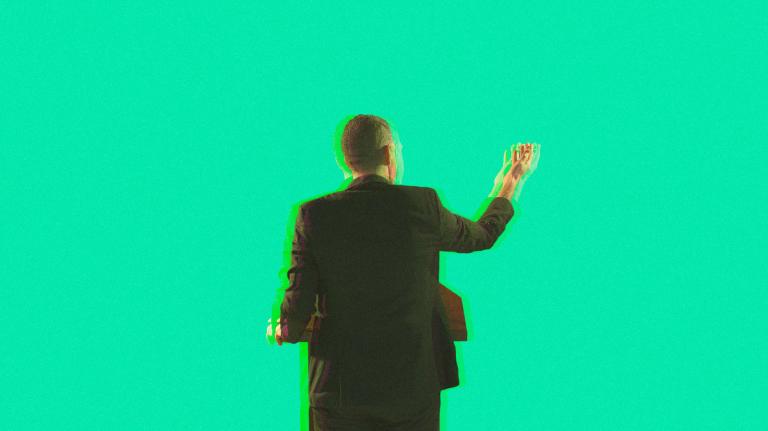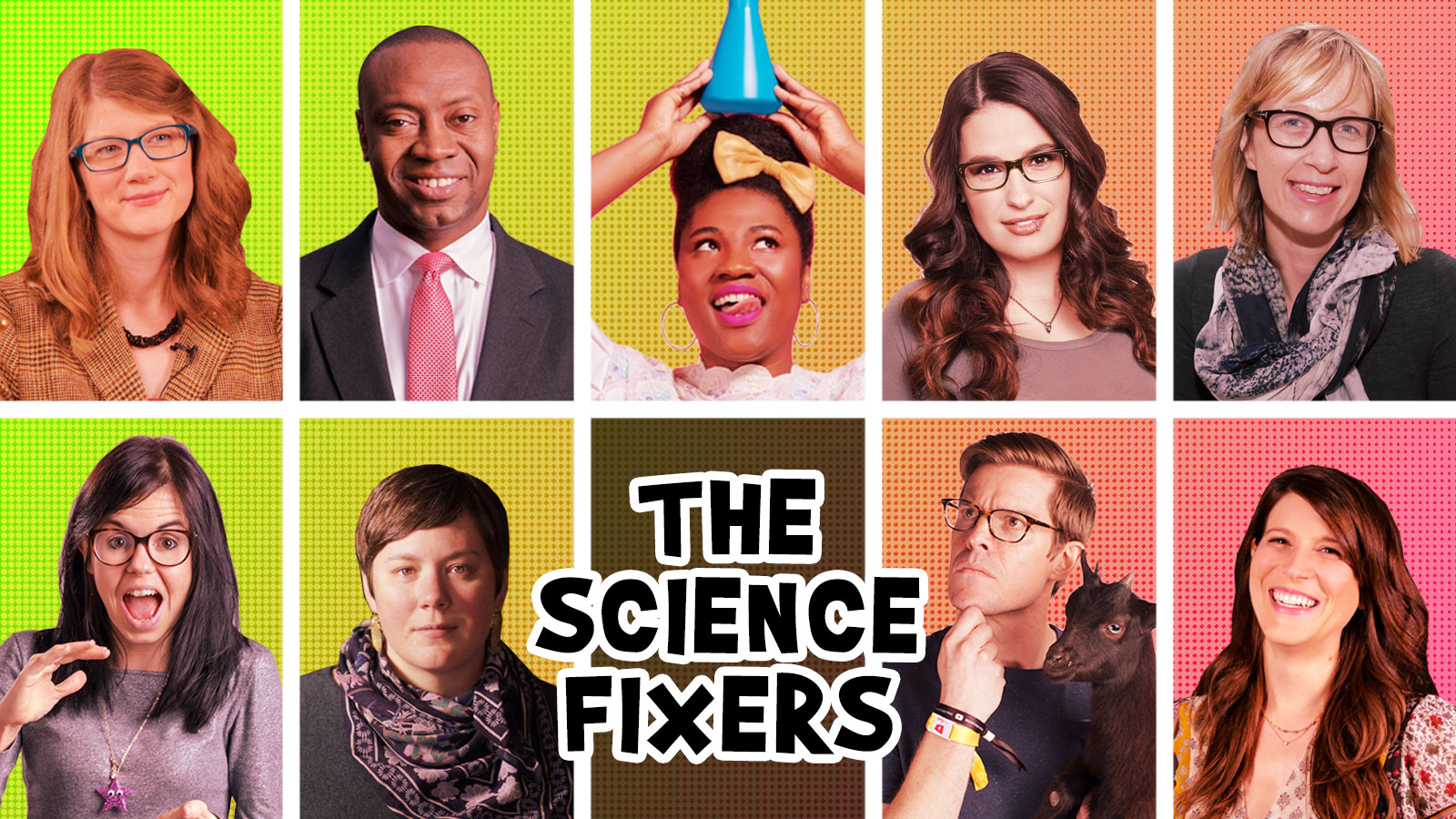If you’re anything like me, it’s been a rough month of trying to avoid Neil deGrasse Tyson. The astrophysicist is known for his lead role in the TV series NOVA and Cosmos, his inspiring quotes about the universe, his enormous Twitter following, and — as of December — for four accusations of sexual harassment and assault.
When I was winding down after a long day by scrolling through some hilarious tweets, there he was, being a dick about the precise scientific accuracy of someone’s joke.
When I decided to be super intellectual and pick up a book, I was confronted with the question of what to do with my copy of Astrophysics for People in a Hurry.
I couldn’t even innocently peruse Facebook for embarrassing photos of my friends without running into a photo I’d posted of him in high school.
But in avoiding the man, I found myself missing the knowledge — the weird facts I never knew I needed, the life-altering perspective on the universe, and, of course, the occasional ruthless take-downs of science-deniers.
Listen, fellow science geeks, I won’t tell you what to do with the news about Tyson — that’s complicated (and Eve already did it!). But there are tons of other science communicators out there. Here are some you’ll love.
- Emily Graslie — Science communication so transformative there’s a butterfly named after her: the Wahydra graslieae. Emily Graslie is the chief curiosity correspondent at the Field Museum in Chicago, which grants her (and us, thanks to her YouTube channel The Brain Scoop) access to the coolest collections museums have to offer. It’s no wonder she was a member of the original Grist 50 back in 2016!
- Marshall Shepherd—Marshall Shepherd is a whole new kind of weather man (don’t worry, this isn’t the Nicolas Cage movie). He’s on every medium you can brainstorm — his podcast Weather Geeks, Twitter, and Forbes, to name a few — explaining not just what the weather is, but why the weather is. And he’s got the credentials to back it up: Shepherd is a former NASA scientist who once served as president of the American Meteorological Society.
- Lindsey Murphy —Lindsey Murphy’s YouTube channel Crazy Aunt Lindsey is geared toward kids, but as with the best crazy aunt — “that one who walks by the beat of their own drum, is always up to something super cool, and just seems to see the world a little differently than everyone else,” as Murphy describes her — adults will get a kick out of her too. Murphy approaches science with an eye to inclusion and accessibility, and the science experiments on her channel can be done with items you probably already have around the house. Science is fun! Murphy wants kids to have the opportunity to figure that out for themselves.
- Cara Santa Maria—Let’s put it this way: Cara Santa Maria does everything. She’s appeared on TV shows like Larry King Live and The Weather Channel’s Hacking the Planet. She’s won awards for both research and journalism. She’s a host of podcasts “The Skeptics Guide to the Universe” and “Talk Nerdy,” which have in turn won their own awards. It’s like some kind of Russian nesting doll of awards! Plus, she founded the annual Sci Comm Camp, which gets a bunch of science communicators in one place — a concept I can get behind.
- Kate Marvel — I can’t tell whether it’s Kate Marvel’s last name or her work as a climate scientist at the NASA Goddard Institute for Space Studies that makes her seem like a superhero. Maybe it’s the Wonder-Woman-esque cobalt dress she’s wearing in her Twitter profile picture. Or the fact that she studies clouds. (Think she can fly?) Regardless, she’s someone you should know about. Find her on the TED mainstage, Meet the Press and, of course, Twitter.
- Jess Wade—Don’t tell your high school teachers, but your propensity for Wikipedia research may not be so bad after all — at least not if you’re using the pages physicist Jess Wade has created. Frustrated with the lack of representation of women, people of color, and LGBTQ scientists (and the ridiculous, sometimes lipstick-smeared attempts to right the wrong), the British researcher has written hundreds of Wikipedia pages highlighting under-recognized scientists. She’s also pushing for an addition to high school science curricula worldwide: Inferior, Angela Saini’s book about the totally unscientific reasons for gender inequality in science.
- Jacquelyn Gill—Jacquelyn Gill must be into extremes. She’s an Ice Age ecologist, host of the climate-change podcast Warm Regards (created by Grist columnist Eric Holthaus!), and an assistant professor of climate science at the University of Maine (the easternmost state in the Union!). One reason she’s so keen on studying the past is that she knows what it can tell us about our future — and, you know, the woolly mammoths aren’t so bad, either.
- Joe Hanson — If you’re already here looking at a list of science geeks, you probably agree with the sentiment of Joe Hanson’s YouTube channel, It’s Okay to be Smart. He’s a biologist by training, but he tackles topics like “The SCIENCE of BEER!!!” and, you guessed it, climate change. Hanson also co-hosts the PBS series Hot Mess, alongside Miriam Nielsen and Talia Buford. (The title describes the show’s subject — global warming — not its hosts, who may be hot, but are certainly not a mess.)
- Anna Rothschild — The first thing that showed up in a Twitter search of Anna Rothschild’s name was her own tweet blaring, “ALWAYS FARTS! ALWAYS FARTS!” It’s as good a summary of any of Rothschild’s goofy take on science journalism. As the host of Washington Post’s Science Magic Show Hooray, she’s there to answer your most pressing science questions, like this one from someone calling himself John Cena: “Why do we have butts?” (If you binge all the videos on that fairly new channel, head over to Gross Science, the NOVA show she’s taking a hiatus from.)
Photos courtesy of: Sheheryar Ahsan; UGA Photographic Services; Lindsey Murphy; Rachael Porter; John Pinderhughes; Thomas Angus, Imperial College London; Gregory Rec; “It’s Okay To Be Smart/PBS Digital Studios”; Jason Wong.




